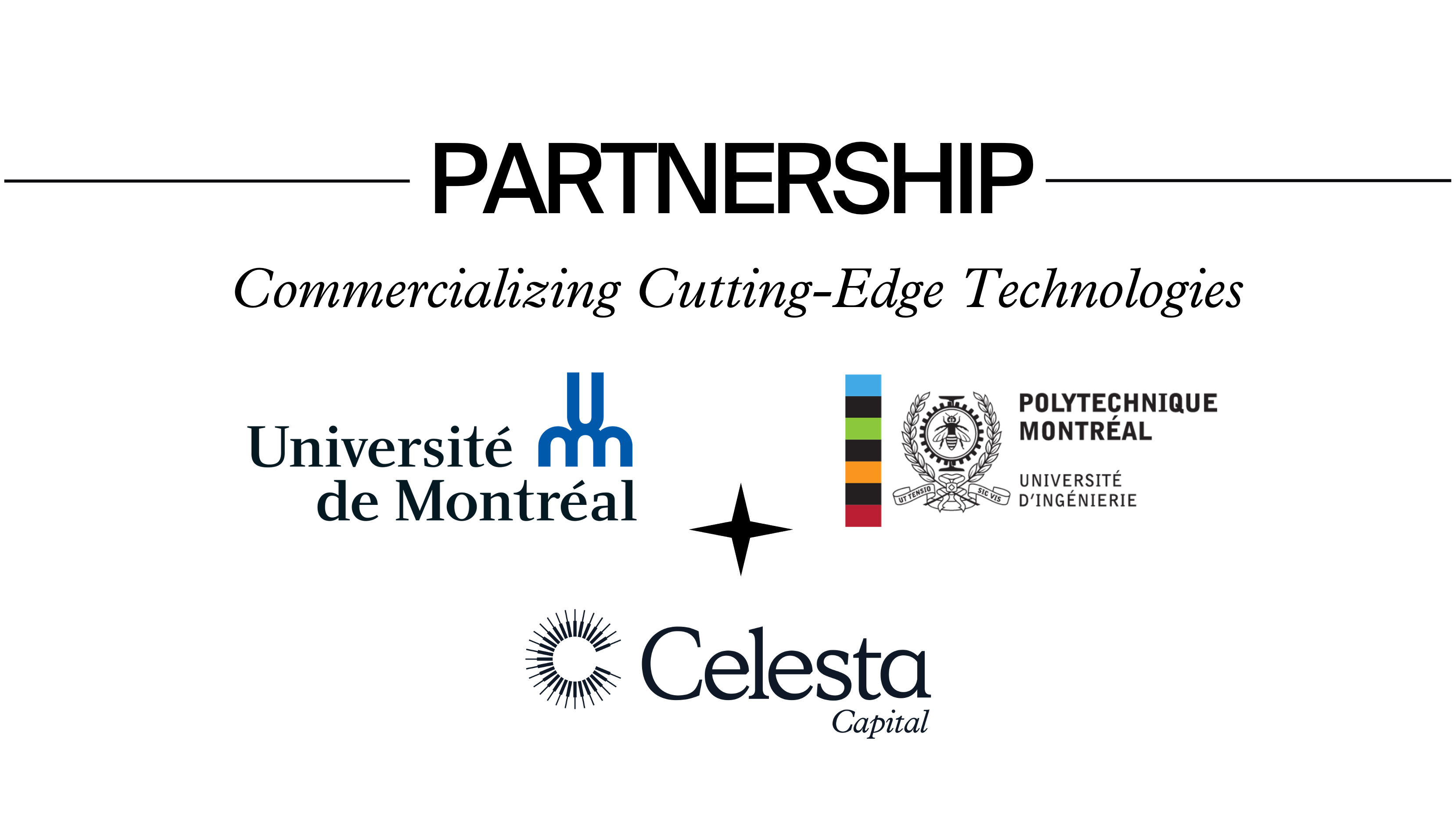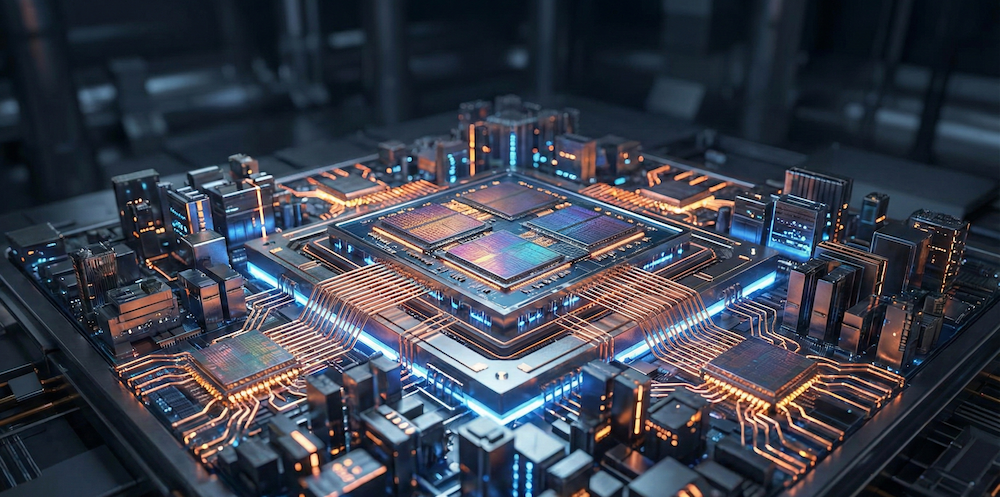NextGen Tech: Calumino Founders Marek Steffanson & Gabi de Wit
NextGen Tech: Calumino Founders Marek Steffanson & Gabi de Wit
Dr. Marek Steffanson has over 15 years of expertise in Micro-Electro-Mechanical Systems (MEMS) and thermal infrared sensing technologies. He is the inventor of over 30 patents. He holds a PhD in Micro- and Nanotechnology for thermal infrared imaging chip micro-machining from the Technical University of Ilmenau in Germany. During this time, he was CEO of a University spin-off developing and selling nanometrology. He holds a Master of Engineering in Micro- and Nanotechnology from TU Ilmenau, Germany, and a Master of Business in Engineering Management, from UWS, Australia, and prior to his PhD he worked with the BMW Group in Japan and Germany.
Dr. Gabrielle de Wit has over a decade of expertise in nano-optics and photonics. She is the inventor of dozens of patents and has played an instrumental role in the research, development, and scaleup of a novel thermal imaging method based on a micro-thermo-optical mechanism, the foundation of Calumino’s disruptive product. In 2016 Dr. de Wit completed her PhD at the University of Oxford as a Clarendon Scholar, where she successfully demonstrated the first real-time, label-free observations of molecular organization in cell membrane models. Prior to her PhD she gained expertise in quantitative finance and outer-atmospheric chemistry and holds a MSc in Molecular Reaction Dynamics, and a BSc in Chemistry and Mathematics from the University of Sydney.

Dr. Marek Steffanson has over 15 years of expertise in Micro-Electro-Mechanical Systems (MEMS) and thermal infrared sensing technologies. He is the inventor of over 30 patents. He holds a PhD in Micro- and Nanotechnology for thermal infrared imaging chip micro-machining from the Technical University of Ilmenau in Germany. During this time, he was CEO of a University spin-off developing and selling nanometrology. He holds a Master of Engineering in Micro- and Nanotechnology from TU Ilmenau, Germany, and a Master of Business in Engineering Management, from UWS, Australia, and prior to his PhD he worked with the BMW Group in Japan and Germany.
Dr. Gabrielle de Wit has over a decade of expertise in nano-optics and photonics. She is the inventor of dozens of patents and has played an instrumental role in the research, development, and scaleup of a novel thermal imaging method based on a micro-thermo-optical mechanism, the foundation of Calumino’s disruptive product. In 2016 Dr. de Wit completed her PhD at the University of Oxford as a Clarendon Scholar, where she successfully demonstrated the first real-time, label-free observations of molecular organization in cell membrane models. Prior to her PhD she gained expertise in quantitative finance and outer-atmospheric chemistry and holds a MSc in Molecular Reaction Dynamics, and a BSc in Chemistry and Mathematics from the University of Sydney.
What does Calumino do?
Marek:
Calumino has developed a unique thermal sensor technology that delivers privacy-sensitive human detection. We enable use cases that include human activity detection, people counting, and human location data aggregation – all without compromising individual privacy. Our technology excels at highly accurate remote temperature measurements, eliminating the need for thermographic scanning and making it ideal for various applications, where real-time temperature monitoring is safety critical.
Can you tell us about your path to founding the company?
Gabi:
I began working on Calumino after finishing my PhD in nano-optics at the University of Oxford. I was looking for exciting opportunities where I was able to apply my deep understanding of photonics while also working at the frontier of cutting-edge technologies. I met Marek in one of the leading deep-tech incubators and we shared the vision of a ubiquitous, low-cost thermal sensor that had the potential to disrupt the sensor industry. A couple of years later we created the first-gen product together, with proven mass-manufacturability and performance that far exceeded the best thermal image sensors and thermal detectors in the industry.
Marek:
I started in thermal sensing over 15 years ago with my PhD studies. Thermal sensing has traditionally been the domain of the military, valued for its high resolution, performance, and low power consumption in critical applications like night vision and missile tracking. These demanding needs drive the industry to push technological boundaries, with cost being a lower priority. However, the motivation for starting Calumino was that we saw huge potential for a simpler, more accessible version of the technology. This became our mission: to take the power of "military-grade" thermal sensing and unlock it as a practical, scalable, and affordable tool for civilian and business applications adding tremendous value for many unsolved problems.
What is new about Calumino’s technology compared to your competitors?
Gabi:
On a technical level, our technology is the world’s first thermal sensor to use a purely optical readout to convert infrared radiation into a temperature signal. This enables a very stable output and low temporal noise and uses a fabrication process that is much simpler, lower cost, and higher yield than other thermal sensing technologies. In addition to the hardware, we have designed custom AI to extract valuable data from the sensor. No one else in the industry combines thermal sensor hardware + AI to generate actionable data.
Our biggest advantage though is the unmatched combination of price and performance we can deliver. We've developed a highly affordable solution that integrates powerful AI functionality, making Calumino the first thermal sensing product that is cost-effective for mass-market applications.
Can you share more about the real-world problems do you solve for your customers?
Marek:
Our sensor with its in-build AI can detect presence, count people, measure room temperatures and visualize movement patterns, with strong individual privacy protection. The unique combination of functionalities unlocks a wealth of data previously unavailable.
Commercial real estate is a good example, where many new technologies have struggled to grow to meaningful scale. While some smart buildings utilize more advanced sensing such as cameras or radar, these solutions are either privacy intrusive, which the public is opposed to or has a lack in performance. There is a big need in the sensing space to enable true building intelligence.
For building technology manufacturers who want to integrate thermal sensing technology into millions of units, military-grade systems are simply too expensive for such large-scale deployments. This is where our approach is fundamentally different. We prioritize affordability and focus on high-sensitivity and low-resolution thermal sensing, with our own developed AI, which is ideal for understanding human occupancy, movement patterns, and activity of our living and working environment.
The need for privacy non-intrusive human activity detection extends to many other areas like senior care, fall detection, home care, security, home rentals, hotels, and fire safety, among others. We're excited to be pioneers in this space.
What is the long-term vision for the company?
Marek:
The long-term vision for us is to make thermal sensing technology ubiquitous. We have a slogan “from every home to every phone,” because we see no reason why this technology could not go everywhere.
Thermal camera technology is shrinking and could soon even be in your smartphone. We’re envisioning being able to use our phones for real night vision, seeing clearly in the dark or fog, or even spotting someone 50 meters away. This technology can also sense heat, making it useful for fever detection, checking baby bottles, and even cooking applications. The possibilities are limitless.
What exciting things are happening in the business?
Marek:
We have recently begun mass manufacturing and are now selling our thermal sensor as an OEM module component, plus our AI license, in volume to third parties to integrate into their products. This is a key moment for the company since we have been working relentlessly on setting this strong foundation – it is very rewarding. Many of our innovative customers are launching now. Over the next 12-18 months, we'll have several more customers in-market using products with our technology.
Seeing our sensors being deployed by our customers for important value-adds – like saving energy, reducing greenhouse gas emissions, and enabling better and safer living conditions – is highly rewarding. - Gabi de Wit
How can an investor best partner with a founder or CEO?
Marek:
Savvy investors are crucial partners beyond just capital. We look for investors who can synergize with us across various areas – technology, operations, and commercial. As we scale, their expertise becomes invaluable. They help us establish the right structures and processes that set the stage for the company's next phase of growth. Investors that allow us to leverage their knowledge are essential for a young and growing company. Our investors have been incredibly supportive, and we would not be at this stage today without them.
Gabi:
We are fortunate to benefit from our investor’s vast experience building deep tech companies. The ability to have conversations with technical advisors who have developed first-ever technologies is priceless.
What advice would you give to other startup founders and tech leaders?
Gabi:
There is no substitute for hard work. And, when in doubt, keep asking questions until the path forward becomes clear. In the process, you will almost always discover new knowledge or create something of value.
Marek:
I've learned that time and resources are the most precious commodities in the startup world. I prioritize activities that deliver the highest impact and propel the business forward most effectively.
Building networks and relationships is also key. Business is really about people. All our customers value the team and the support behind it as much as they value the technology.
Where do you find motivation on this journey?
Gabi:
Much of the motivation comes from the satisfaction of solving problems and creating scalable technology that has the chance to create a better future. Seeing our sensors being deployed by our customers for important value-adds – like saving energy, reducing greenhouse gas emissions, and enabling better and safer living conditions – is highly rewarding.
Marek:
Customer satisfaction and watching them have this “a-ha” moment, when they discover that our tech can unlock additional benefits in addition to their enquired solution, is rewarding to see and keeps me going. Many of our customers have been engaged with us for a substantial amount of time now and we have built very strong relationships and partnerships.
Secondly, I like to find the time to stop and realize how fortunate these circumstances are. We live in a time where this technology is possible, and we have access to an incredible network of investors, supporters, and circumstances to bring it to life. As a startup founder, you're the niche of the niche, a small select circle. Maximizing the potential that others have enabled you to achieve is so important.
What are you reading?
Marek:
One book I recommend, which we give to every new employee, is called “Build” by Tony Fadell. I feel that the book has great examples for not just engineers, but everyone who wants to be involved in an entrepreneurial way and work for a startup. It’s a good motivational book, but also gives practical advice on how to build not just things, but a career.






